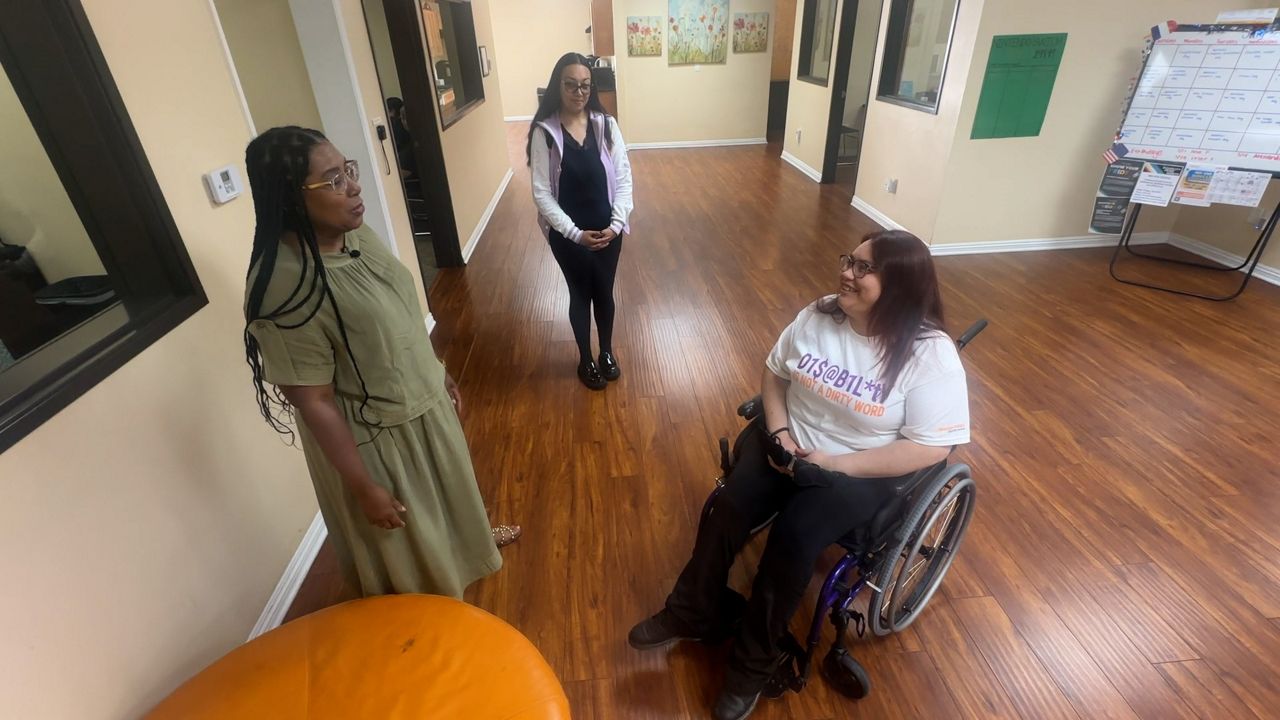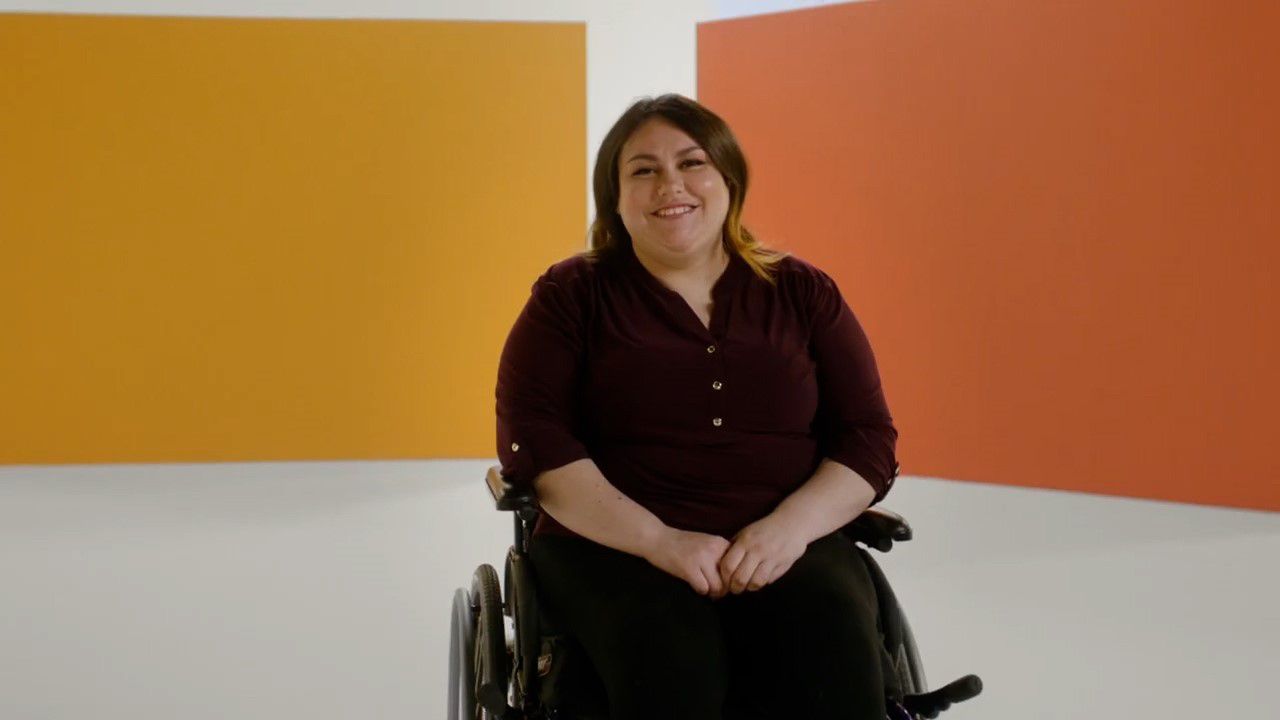LOS ANGELES — Betty Partida loved to draw ever since she was a child.
“Scooby-Doo is my favorite,” she said, showing one of her drawings.
She says art helps keep her hands and mind busy during the day, but when she’s not putting to paper, she’s using her own experiences to help people with disabilities.
Partida, who has cerebral palsy, is one of nearly 10 people featured in Easter Seals’ new campaign, “D1$@B1L*tY Is Not a Dirty Word,” which the organization recently launched as part of Disability Pride Month. She said she was thrilled to be involved and that her community’s voices, in both English and Spanish, need to be heard.
“I want to encourage people with disabilities to not be shy and speak up,” she said.
What you need to know July is Disability Pride Month, and Easter Seals has launched a new PSA campaign called “D1$@B1L*tY Is Not a Dirty Word.”
According to the CDC, a quarter of all Americans have a disability — more than 61 million people.
The campaign features 11 people sharing their personal stories, including Betty Partida, who has cerebral palsy and spends most of her time in a wheelchair.
Partida is vice president of Our Voices Matter, an advocacy group founded by Eastern Seals Southern California participants.
According to the CDC, a quarter of all U.S. residents have a disability — more than 61 million people, including nearly 5.5 million in Southern California. Kimberly Cohn, chief marketing and communications officer for Easter Seals Southern California, said the campaign is not about raising awareness, but about increasing understanding.
“You know, people with disabilities can be proud of who they are, just like anyone else,” she said. “We’re really trying to dispel the stigma of people who are nervous about being proud or disclosing their disability.”
She said there has been progress since the Americans with Disabilities Act, which protects people with disabilities from discrimination, was passed in 1990. But despite a widespread focus on diversity, equity and inclusion, change has been slow and small in scale.
“There’s been a lot of discussion about DEI efforts over the past few years, but somehow disability remains left out of that conversation,” Cohn explained.
(Spectrum News/Tara Lynn Wagner)
Her hope with the new PSA campaign is that people will become less uncomfortable with the subject of disabilities and people with disabilities.
“You know, there’s this saying: ‘Don’t be weird,'” she says, “so everyone should stop being weird.”
While this is Partida’s first PSA appearance, she’s not new to activism: She’s vice president of Our Voices Matter, and traveled to Sacramento in March to protest proposed defunding of disability services.
She admits she wasn’t always proud: When she was younger, she heard her father laughing at another child with a disability.
“And when he laughed at that little boy, I felt like he was laughing at me,” she said.
It’s been a long journey from there to becoming a spokesperson for Disability Pride, but she says pride is who she is.
“I wouldn’t change my disability for anything because without it I wouldn’t be where I am today,” she said.
Someone with a voice, passion and purpose.


